The problem with Roman history, says Mary Beard, is that “it’s just irredeemably blokeish. It’s conquests, and if it’s not conquests, then it’s engineering, and if it’s not engineering then it’s Roman military tactics. You don’t see the child miners or the slaves, and you don’t think: ‘How the hell would you get that column from Egypt to Rome?’”
Beard lives in Cambridge, where she is professor of classics, a fellow of Newnham College since 1984. Her house looks as if it is built of books, and her husband pops in periodically offering milky coffees. If it weren’t for her TV career, which began in this century, decades into her academic career, it is highly doubtful (to me) that she would have picked up the epithets she has – outspoken, subversive, controversial, dangerous.
She is a woman with a searching mind; she looks at accepted truths and challenges them. “Roman military tactics were much over-rated. All the clever ones had the same idea, which was to go round the back.” She thinks critically about contemporary politics, and also swears. “Isn’t the point of politics that a citizen can talk about it? Aren’t we always complaining that politics has become a specialist enclave? Politics is something that we can all understand, that is the fucking definition of it.”
She is a feminist to her bones, and gives no quarter to the kind of historical relativism that ringfences the brutality of the past as something natural and unremarkable, like eating songbirds. “It’s very hard to get positive female role models in the history of the Roman empire. You think you’ve got one, and then, oh no. She’s been raped. And killed herself. If you’re going to remove the sexual violence, you cannot tell the story of Rome.” She is resolute on her purpose in public life, and has no qualms about the distinction of scholarship: “What is the role of an academic, no matter what they’re teaching, within political debate? It has to be that they make issues more complicated. The role of the academic is to make everything less simple.”
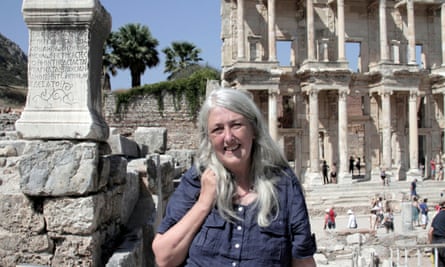
It would be harder to imagine the woman who could reach this level in academia without these traits than it is to explain why she is such a shock to the system. It seems that the job of making everything less simple is fine, unless you do it on primetime TV (as she will once again this week, when she appears in her latest Roman film, Ultimate Rome: Empire Without Limit) – whereupon it becomes an absolute minefield.
“It was [then BBC executive] Janice Hadlow who convinced me, basically on a feminist ticket. I thought it would be a waste of time, and she said: ‘You’re one of the people who says that television documentaries are presented by craggy old men, and now I’m offering you a documentary and you don’t want to do it? Money where mouth is, dear.’”
The TV critic AA Gill stepped up dutifully in 2012 to lavish sexist bilge upon Meet the Romans, upon which – and this is where Beard first started to gather a reputation as a firestarter – she hit back. “Even the greenest of my students,” she wrote in the Daily Mail, “would not present me with an essay as ill-argued and off the point as Gill’s critique. Possibly this is where we reach the heart of [his] problem: maybe it’s precisely because he did not go to university that he never quite learned the rigour of intellectual argument, and he thinks that he can pass off insults as wit.”
It wasn’t an unheard of manoeuvre, standing up to a bully – but it was and remains pretty unusual, and Beard’s robustness derives partly, I think, from her sincere belief that rational people don’t really care what she looks like. “What’s nice about [doing documentaries] is that it’s not because I’m a size zero or look anything different to an ordinary woman in her 60s. Whatever you say about popular culture, people like people who know things, who are experts, and it doesn’t particularly matter what they look like.”
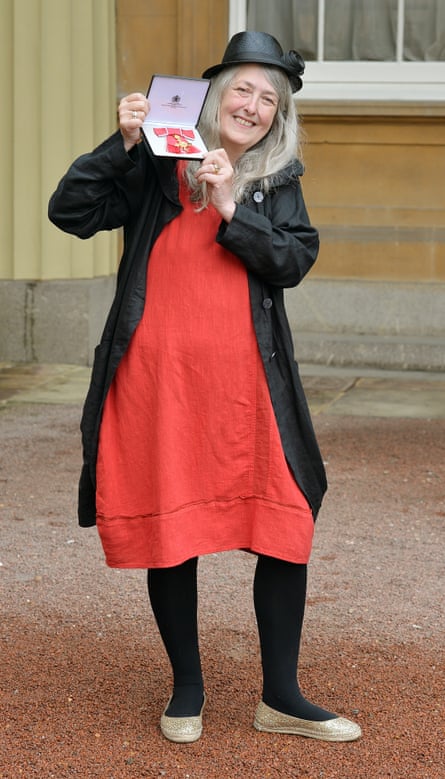
The other anxiety an academic might have about presenting theses to the layperson is that it would be considered low-brow, and diminish his or her status in the eyes of colleagues. “I’m not sure they’d be honest,” she says of her peers, “but they’re very generous. I do my job, and I think the programme has done a lot for the subject.”
It helps that she seems to genuinely enjoy making programmes, or, at least, having made them. “It’s a great privilege to be allowed on to people’s screens, but it isn’t a passport to the glamour of old-fashioned travel. It’s not Beard creaming it, being given a chair and the occasional fan. To find the examples that are really going to nail the point, it’s days and days’ work. And maybe that work has already been done in the 1870s, but it has disappeared, and nobody has seen it for 50 years.”
Whenever she says hard work, whether it’s 12 hours in a library, or five days in Pompeii, she means that in a good way. Like an athlete describing a day in the gym, she sees it as a means to an end in principle – good things can’t be achieved without hard work – but can’t imagine not wanting to do it, either. She is in a permanent state of urgent mental inquiry. It sounds exhausting, but she never looks exhausted.
Anyway, her reputation as Troll Hunter General didn’t come from her documentaries, which mainly enlivened a certain sort of person to patronise her with their “disappointment”. “‘I’m disappointed in Mary Beard’,” she quotes, “and what it means is: Mary Beard has said something I disagree with. But as soon as you say you’re disappointed, it takes on a whole new moral aspect.”
No, social media at its most revolting and misogynistic only really came alive when she appeared on Question Time, in 2013. She famously confronted one of the trolls – Oliver Rawlings – and even more famously, wrote him a job reference a year later, since she was worried that the contretemps would harm his prospects. “The thing about being a university teacher is that you’re fairly tolerant about young people saying things they shouldn’t have said. You look at undergraduates, getting plastered and vomiting everywhere. We can get cross about it, but the idea that this is a great moral turpitude ... they’ve got to clear it up and say sorry and not do it again, that’s what being 19 is about. I think you can be a bit compassionate about it. Then there are people living lives of misery. It doesn’t excuse them for saying what they do, but too much moral superiority on the part of the victim, it’s not attractive. It comes with the territory of the job, you recognise human frailty among those who are basically clever and good, who sometimes do very stupid things.”
Sure, I nod, I would be the same, except Beard takes an unusual additional step: she doesn’t just wait for people to bring the fight to her, and then show them compassion when they’re wrong. She is always getting into online scraps that she didn’t start, simply because she refuses to stand idly by while a conversation gets stupider. Take Palmyra, the site of bloody executions by Islamic State, subject of many column inches on the savagery of their worldview. Beard was furious to see commentators calling the ruins an amphitheatre when it was actually a theatre, and not for pedantic reasons, either: “The technical point is that a theatre in the ancient world has one side with a stage, and an amphitheatre was a Roman invention with seats all the way round. These functions were quite different. A theatre was for plays; an amphitheatre was for wild beast hunts and gladiatorial combat. With Palmyra, by wrongly calling it an amphitheatre, you create a cultural elision between the sadism of the ancient world and the sadism of the modern world. It brought a complacent knowingness. When, actually, they were killing prisoners in a building that was built for theatre, not in a building that was built for killing.
“And,” she goes on, “I think the other thing that has bothered me about Palmyra: in some ways, everybody’s got a right to speak, but there’s an awful lot of commentating about its importance and wonder by people who, until Isis took over, had no clue what it was and would probably, if asked to provide some government money to do archeological research, have said that it was a complete waste of money.”
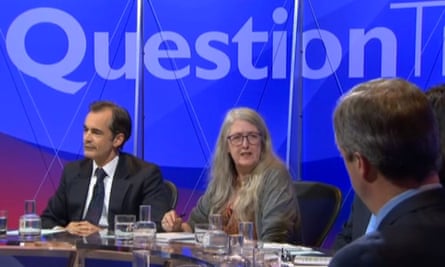
Her reservations about Pompeii – not the place itself, but the rhetoric around it – come from the same impatience with pomposity, hypocrisy and affectation. Indeed, reading back, I think she’s angrier, by far, about the way people discuss Pompeii than she is about the Twitter trolls who Photoshopped pudenda on to her face and castigated her dentistry. “The British in particular are very sanctimonious about the care of Pompeii – ‘Look how the Italians are failing to take care of it.’ They talk about the house of the gladiator, when nobody has a fucking clue about the house of the gladiator. Then you say, ‘Did you know the British bombed Pompeii during the war?’ The allies bombed the shit out of it. Why do you think there’s a restaurant in the middle of it? That’s where the bomb damage was so great that there was no way to rebuild the site. We’re as guilty as anybody, so let’s get off our fucking high horses.”
It’s understandable why she would throw herself into the fray of ancient ruins: more surprising is the way she will enter incredibly febrile debates in which she has no skin in the game. She recently signed an open letter about censorship and universities, relating to the no-platforming of those considered transphobic. There followed a vitriolic row, in which she was accused of transphobia herself.
“I hadn’t quite realised how explosive it was,” she begins. “I just ...” She checks herself with a self-deprecating grin. “Any sentence that begins ‘I just’ is effectively, ‘I’m going to be naive.’ I feel very strongly about no-platforming, on an old-fashioned, basically liberal position. It’s an issue which is easy to blow up beyond its actual extent. I do not go into the university and worry constantly that I am going to be no-platformed because I have these views on x or y. It is not blighting my daily life, and it’s not blighting the lives of my colleagues. But you don’t want a world in which no one’s ever offended. I’m not even sure that I want a world in which there’s only one rhetorical register. If the price of that is some offence, I think it’s a price that has to be paid.”
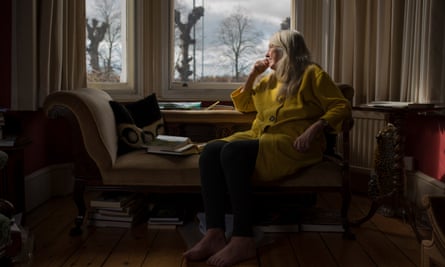
Characteristically, she refines that position. “If you support the notion that sometimes people should be offended, you have to agree that you are one of those people who will, from time to time, be offended. And, arguably, offence is only something that the disempowered can feel. Therefore there is never any equilibrium. But we need to talk about all this; none of it gets talked about when there is a very simple polarity.”
The tendency to polarity never deters her: whether it’s Cecil Rhodes (she doesn’t agree with taking down the statue, yet she agrees, “you have to be able to recognise that your institutions have been built on colonialism”) or Joan Bakewell on Twitter (the broadcaster made a comment about eating disorders that was widely attacked, Beard thought unfairly), she will throw herself in anywhere she thinks an issue is being flattened and oversimplified, or an unjust reading is galloping away with the truth. Even if we were to assume that this moral courage carried no emotional cost – and I’m not sure that we can – it must at the least be very time-consuming.
The only time she seems ambivalent about spending, however, is that collecting honours and honorary degrees – she was awarded a Bodley medal this month – and she says of ceremonies generally: “Getting dressed up in silly clothes is not my idea of fun. But if, for whatever reason, you consistently turn things down, and I can see the temptation of that, you’re just contributing to keeping women out of the limelight.” Yet her work as a classicist is the only kind she will really admit as work, in the sense of having an ethic about it. “We don’t have a responsibility to the Romans. We have a responsibility to ourselves and the ongoing process of understanding ourselves.” This is especially true of Beard herself: looked at in the round, she is incredibly, exhilaratingly gladiatorial.
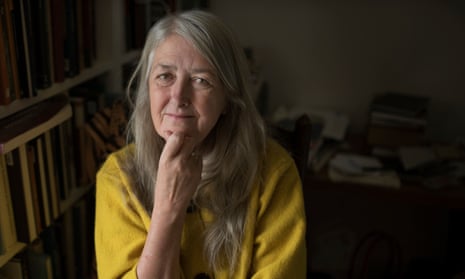
Comments (…)
Sign in or create your Guardian account to join the discussion